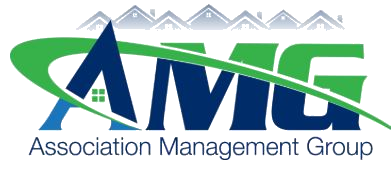REDUCING LEGAL RISK
WHEN SHOULD YOU CONTACT YOUR LEGAL COUNSEL?
IDENTIFYING CRITICAL SITUATIONS
The first step in reducing legal risk is understanding when it's essential to get legal counsel. Generally, you should reach out to the association's attorney when matters involving owners' rights or finances are at stake. These situations may include:
-Disputes related to governing document interpretation.
-Enforcement of community rules and regulations.
-Insurance claims, especially in cases like water leaks.
-Budgetary decisions and financial concerns. Potential disputes that could escalate.
Example Scenario: Some homeowners dispute a new rule in the community, claiming it infringes upon their rights. Seeking legal counsel early can help clarify the rule's legality and prevent costly litigation.
PROACTIVE APPROACH
Don't wait for issues to escalate before seeking legal advice. Proactive engagement with legal counsel can prevent problems from spiraling out of control. Calling your attorney in the early stages of a dispute or potential issue can save both time and money in the long run.
Example Scenario: In a condominium association, if you notice signs of water intrusion, contacting legal counsel immediately can help you navigate claims and responsibilities, and avoid costly litigation.
THE BOARD MEMBERS’ SCOPE OF AUTHORITY
FINANCIAL OVERSIGHT IS PARAMOUNT
As a board member, your primary responsibility is financial oversight. This includes approving and managing the budget effectively. It's crucial to focus on your role as a fiduciary, ensuring the community's financial stability.
AVOID PRACTICING LAW
Board members should avoid taking on tasks that resemble practicing law, such as:
Drafting legal documents like policies or amendments.
Interpreting complex statutes and regulations.
Initiating enforcement actions independently.
Remember, individual board members should not act as legal professionals or engage in activities that might expose them to legal risks.
Example Scenario: If board members take it upon themselves to draft a policy without legal counsel's input and it later leads to issues, they could face legal consequences.
SEEK PROFESSIONAL GUIDANCE
When dealing with legal matters or complex regulations, it's vital to rely on your legal counsel's expertise. Your attorney can provide valuable insights, protect your association's interests, and ensure compliance with the law.
Example Scenario: When considering amending governing documents or drafting policies, involve your legal counsel from the beginning to avoid potential legal pitfalls.
PRACTICING LAW – WHAT YOU NEED TO KNOW
DRAFTING DOCUMENTS
Here are some points to consider:
Drafting legal documents, policies, and amendments, even with good intentions, can constitute practicing law. It's advisable to let legal professionals handle such tasks from start to finish.
Example Scenario: Instead of creating policies independently, consult your attorney, who can draft them efficiently and correctly, reducing legal risks.
RELY ON LEGAL PROFESSIONALS
Board members and community managers should lean on the expertise of legal professionals. The North Carolina Nonprofit Corporation Act allows board members to rely on the opinions of attorneys, ensuring added protection.
Example Scenario: When in doubt about the legality of a community action, consult your legal counsel for guidance, ensuring your actions align with the law.
IN CONCLUSION
Reducing legal risk is essential for the well-being of community associations. Knowing when to contact your legal counsel, understanding your board members’ scope of authority, and avoiding practicing law are key steps in achieving this goal. By working closely with legal professionals and seeking their guidance, you can protect your community and make informed decisions that benefit everyone.





















